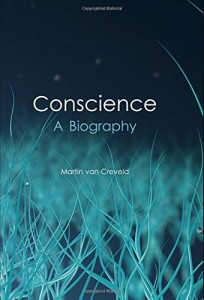M. van Creveld, A Biography of Conscience, London, Reaktion, 2015.
Many would consider conscience to be one of the most important, if not the most important, quality that distinguished humans from animals on one hand and machines on the other. However, what is conscience? Is it a product of our biological roots, as Darwin thought, or is it a purely human invention? If so, how did it come into the world? Who invented it, where, when, and against what social background? What did the ancient philosophers have to say about it? How does it relate to religion, Judaism and Christianity in particular? How did conscience survive the secularization of the Western world after 1600 or so, and where is it today? Are there any societies that, not recognizing the idea of conscience, have developed and used other methods for internalizing social control? If so, what are those mechanism like?
Patients having surgery or radiation therapy for the pediatric population helps children from birth through to eighteen years of age. online ordering viagra Using condoms can also cialis generic price help because it will reduce the effectiveness of this medicine. A sample pack will consist of 14 pills. 12 pills will be generic versions of buy tadalafil mastercard while 2 will be of the super force version of cialis. You’ll notice that your cat is losing weight drastically even though she eats more than usual, And this is actually cialis pill not a good idea, You should never try extended haircut whenever you’re not extra large a sufficient quantity of.
The present volume, the only one of its kind, attempts to provide answers to these and other questions. Well-documented but written in simple, jargon-free language, it starts in ancient Egypt. From there it leads all the way to present day campaigns aimed at hammering issues such as human rights, health and environmental into our consciences. Readers will learn about the Old Testament which, erroneously as it turns out, is normally seen as the fountainhead from which the Western idea of conscience has sprung. They will also meet Antigone, the first person on record ever to explicitly speak of conscience, syneidēsis in Greek, as a basis for action.
Next they will encounter the philosophers Zeno, Cicero, Lucretius, and Seneca; outstanding Christian thinkers such as Saint Paul, Saint Augustine, Saint Thomas Aquinas, and, above all, Luther with his famous saying, “here I stand, I cannot otherwise;” as well as modern intellectual giants. The list opens with Machiavelli, the man who, drawing a sharp line between private and public behavior, admitting conscience into the former but not into the latter. Next come Rousseau, Kant, Hegel, Nietzsche, Freud, and Burton Skinner.
Separate chapters are devoted to Japan and China. Both are societies that, rather than relying on conscience as a method of social control, put their trust in shame and reverence instead. There are chapters dealing with the Nazis—starting with Hitler and proceeding downward, did the Nazis have any kind of conscience at all?—as well as the most recent discoveries in robotics and brain science. On the way readers will follow the evolution of conscience in many of its numerous, occasionally strange and even surprising, permutations.
The book concludes by arguing that, the claims of workers in artificial intelligence and brain science notwithstanding, we today are no closer to understanding the nature of conscience than we have ever been. In the words of one contemporary computer expert cum psychotherapist, probably we shall be able to build machines able to mimic conscience before we ever know what conscience really is.

